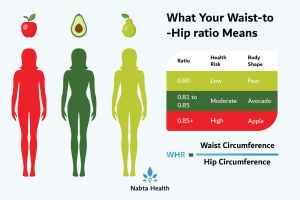What is Selective igA Deficiency?
Selective IgA deficiency is a common primary immunodeficiency in which there is very little or no detectable immunoglobulin A (IgA) in the blood and body secretions (of the ears, nose, mouth, sinuses, respiratory tract, gastrointestinal tract, and genital tract). Immunoglobulins are a type of antibody that helps fight infections. There are many types of immunoglobulins, including IgA.
Selective IgA deficiency is one of the more common immunodeficiency diseases. It affects an estimated 1 in 500 to 600 people. It is more common in Caucasians. Up to 20 percent of cases may be from familial inheritance.
Although many with selective IgA deficiency may appear normal (and may never actually be diagnosed with the condition because they only suffer from mild illnesses), others have significant illnesses requiring ongoing medical care.
The most common illnesses encountered in patients with selective IgA deficiency are recurrent ear infections, sinus infections, bronchitis, and pneumonia. Gastrointestinal infections or chronic diarrhea are also common. Autoimmune diseases (such as celiac disease, type 1 diabetes, juvenile idiopathic arthritis, systemic lupus erythematosus, Crohn’s disease, and ulcerative colitis) are more common (found in up to 25 to 33 percent) in patients with selective IgA deficiency. Asthma and allergies are also more common, occurring in 10 to 15 percent of patients with selective IgA deficiency.
Selective IgA deficiency is usually suspected in patients with recurrent or chronic infections, autoimmune disease, or chronic diarrhea. Typically, the diagnosis is not made prior to 4 years of age. Many people are diagnosed during a broader workup for suspected immunodeficiency when checking all classes of immunoglobulins (only IgA is deficient in this condition). When blood tests show undetectable levels of IgA (< 5 to 7 mg/dL) with normal levels of other immunoglobulins, the diagnosis of selective IgA deficiency is established.
At present, there is no way to replace IgA in patients with selective IgA deficiency. Treatment is geared more toward specific infections. Broad-spectrum antibiotics may be needed until a specific organism can be identified. Some patients may require longer than usual courses of antibiotics or even prophylactic antibiotics (for example, during the winter months) to keep them free from infections. Others with selective IgA deficiency may have developed anti-IgA antibodies, which would put a person at increased risk of allergic reaction or even anaphylaxis when receiving blood products from another individual.
Luckily, some people with IgA deficiency will spontaneously recover and begin producing IgA in larger quantities over a period of years.
Sources:
- Selective IgA Deficiency
- Immune Deficiency Foundation Patient & Family Handbook for Primary Immunodeficiency Diseases
- Fifth Edition
- Accessed January 6, 2017.
Ludvigsson JF, Neovius M, Hammarström L - Association Between IgA Deficiency & Other Autoimmune Conditions: A Population-Based Matched Cohort Study
- Journal of Clinical Immunology
- 2014.
Ammann AJ, Hong R - Selective IgA deficiency: Presentation of 30 Cases and a Review of the Literature
- Medicine (Baltimore)
- 1971;50 (3):223–36.
Powered by Bundoo®










